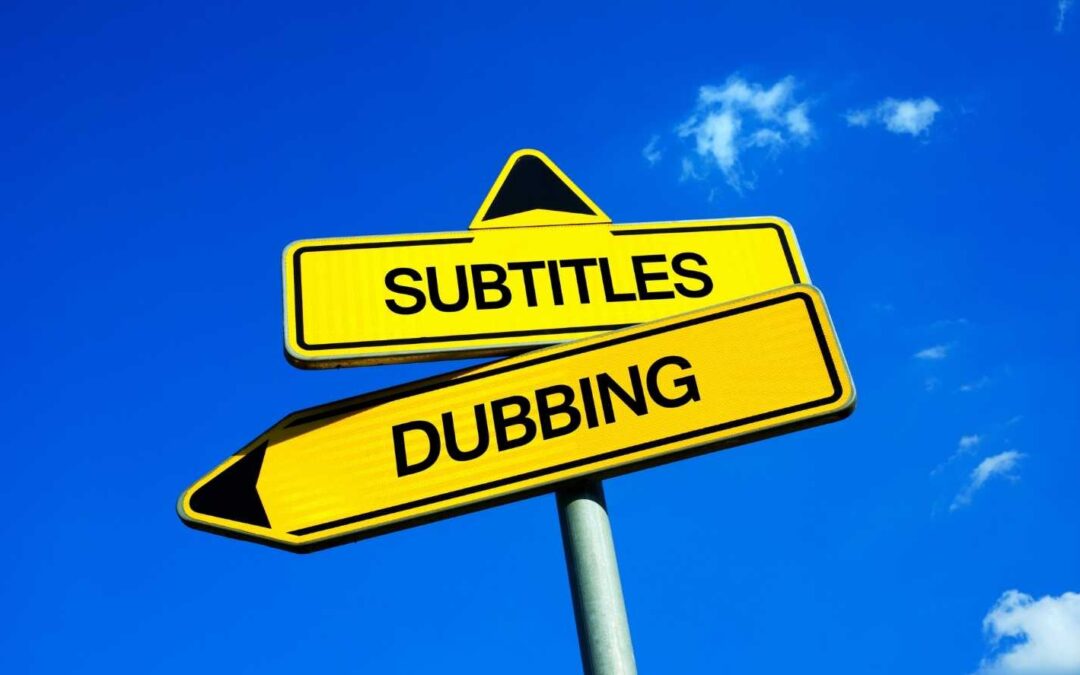Korean dramas, or “K-dramas”, have taken the world by storm. With their addictive storylines and passionate fans, it’s no wonder these shows are so popular. K-dramas have been gaining popularity all over the world for years now, but thanks to Netflix they’ve really taken off. And with their popularity, a longtime debate has found itself in the headlines yet again: Subtitles vs dubbing!
The discussion about subtitles versus dubbing really caught everyone’s attention when Hwang Dong-hyuk, creator of the internationally acclaimed K-drama “Squid Game,” expressed his preference for subtitles over dubbing in an interview with Good Morning America. He advocated for keeping the original actors’ voices, a view that many fans found relatable, though it also opened the floor for a variety of differing opinions.
This topic got even more buzz following the success of the Korean film “Parasite,” which won the Oscar for Best Picture in 2020.
With over twenty years of experience in subtitling, dubbing, narration, and voice overs, our recording studio is excited to bring a unique perspective to this ongoing conversation. We’re all about offering a fair and informed view, shining a light on the perks and quirks of both subtitles and dubbing.
A Sample Of Our Korean Subtitles for MetLife
Let’s start by talking about the differences between subtitling and dubbing.
Subtitling and dubbing are two different techniques used to adapt movies and TV shows for audiences who speak foreign languages. While both aim to translate and localize content, they do so in distinct ways.
Subtitling translates the dialogue of a film or TV show into another language, displayed as text on the screen. This approach lets viewers listen to the original audio while reading the translation, offering a more genuine feel of the original acting and mood.
Dubbing, also known as lip-syncing, narration, or voice over, involves creating a new audio track in a different language for the visual content. This might mean using the original script or crafting new dialogue to fit the dubbed version better. Dubbing is especially favored for content aimed at international audiences, as it makes the show or movie more approachable for those not versed in the original language.
Both subtitling and dubbing come with their own set of benefits and challenges. The choice between them can greatly influence an audience’s experience of a film or TV show. For a more comprehensive exploration of these techniques, you can delve into our extensive article.
The heated debate between subtitles vs dubbing
There are many reasons why people might prefer movie subtitles vs dubbing. In the end, it is really about personal preference. Below we’ve listed popular opinions we’ve heard over the years about these subjects.
People who prefer subtitles often say that…
Dubbing can be distracting and make it difficult to follow the plot of the film. There are a few reasons why dubbing or even lip-sync can be distracting to some viewers. First of all, the voices of the original actors are often replaced with voices that are not as well-known. This can make it difficult for audiences to connect with characters. Additionally, if the dub isn’t professionally created, the lip-syncing can be inaccurate – causing further disconnect and distraction for the audience.
Dubbing removes all of the actor’s original expressions and intonation, which can change the entire meaning of a line or scene. For example, in the French film Amelie, the main character tells her love interest that she will love him ‘eternally’. The line was originally delivered with a lot of emotion and intonation. However, when it was dubbed into English, the line was delivered in a flat monotone, completely changing the meaning.
Subtitles can aid in following the storyline, especially in complex plots or foreign languages.
As noted by filmmaker Hwang Dong-hyuk, subtitles allow viewers to experience the original emotions, voices, and ambient sounds, fostering a deeper connection with the characters and the story.
Subtitles are a valuable tool for learning new languages. They offer a combination of audio and written word for better comprehension and pronunciation.
Subtitles, particularly SDH (Subtitles for the Deaf and Hard-of-Hearing), are essential for viewers who rely on visual cues for understanding dialogue and background sounds.
On the other hand, people who prefer dubbing often say that…
Dubbing helps viewers focus on the movie’s story without the distraction of reading subtitles. This is really useful in fast-paced scenes or when there are lots of characters.
Dubbing lets you hear the dialogue in your own language, making it easier to understand what’s happening and why characters do what they do.
Dubbing allows you to multitask! With dubbed movies, you can do other things while watching because you’re listening, not reading.
We feel that subtitles and dubbing can BOTH broaden horizons.
At Metro Audio and Video, we can’t choose sides because we feel that both formats are equally important for audiences! Both subtitles and dubbing help us understand what’s happening in the film and make it easy to follow along with the dialogue. Furthermore, they play a pivotal role in shaping our perception of foreign films, offering accessibility to those unfamiliar with the original language. This is especially beneficial for K-Drama enthusiasts who may not be well-versed in Korean or are eager to explore Korean culture through English-subtitled or dubbed versions of their favorite films. Ultimately, our commitment lies in providing diverse viewing options for all audiences!






